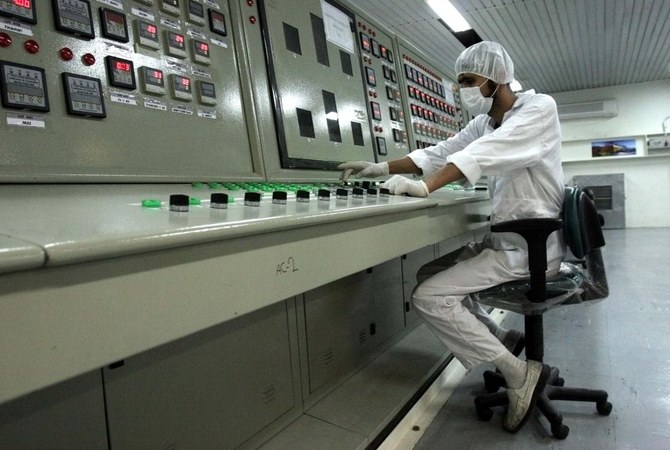JEDDAH/BERLIN: France, Britain and Germany warned Iran on Saturday against starting controversial work on uranium metal-based fuel for a nuclear reactor, which they said had no civilian purpose.
The three countries, signatories to the Joint Comprehensive Plan of Action, the 2015 deal to curb Iran’s nuclear program, said the work was a clear breach of that agreement.
The nuclear deal bans Iran for 15 years from producing or acquiring uranium metal, a material that can be used in the core of a nuclear bomb.
“We strongly encourage Iran to end this activity, and return to full compliance with its commitments under the Joint Comprehensive Plan of Action without delay, if it is serious about preserving this agreement,” they said.
The three European powers, who remain in the JCPOA with China and Russia, said they were “deeply concerned,” and that Iran’s production of uranium metal had no civilian credibility but potentially serious military implications.
Iran has been accelerating its breaches of the JCPOA in the past two months. Some of those steps were triggered by a law passed in response to the killing of its top nuclear scientist in November, widely attributed to Israel.
They are also part of a process of retaliation that Tehran started in 2019 in response to US President Donald Trump’s withdrawal from the deal and reimposition of sanctions that the United States had scrapped in exchange for restrictions on Iran’s nuclear activities.
The Iranian breaches raise pressure on Joe Biden ahead of his inauguration as US president on Wednesday. Biden has pledged to return the US to the deal if Iran first resumes full compliance. Iran wants Washington to lift sanctions first.
Tehran sent another message on Saturday to Biden and America’s allies in the Gulf when the Islamic Revolutionary Guard Corps test-fired long-range ballistic missiles from central Iran toward targets in the Indian Ocean at the end of a two-day military exercise.
The missiles of “various classes” targeted “the enemy’s battleships and destroyed them from 1,800 km away,” the IRGC claimed.
Iran’s armed forces chief of staff Major General Mohammad Bagheri watched the display of firepower, alongside IRGC chief Maj. Gen. Hossein Salami and aerospace commander Brigadier General Amirali Hajizadeh.
“One of our major goals in defence policies and strategies is to be able to target enemy ships, including aircraft carriers and battleships, using long-range ballistic missiles,” Salami said.
Bagheri said the launch showed Iran was ready to respond to any “ill will” by its enemies, and warned that “they will be targeted and destroyed by our missiles.”
The exercises also featured a drone attack on a missile defense system and a barrage of “new generation”surface-to-surface ballistic missiles. They followed a naval exercise in the Gulf of Oman last week, and an army drone drill on Jan. 5-6.
(With Agencies)






















